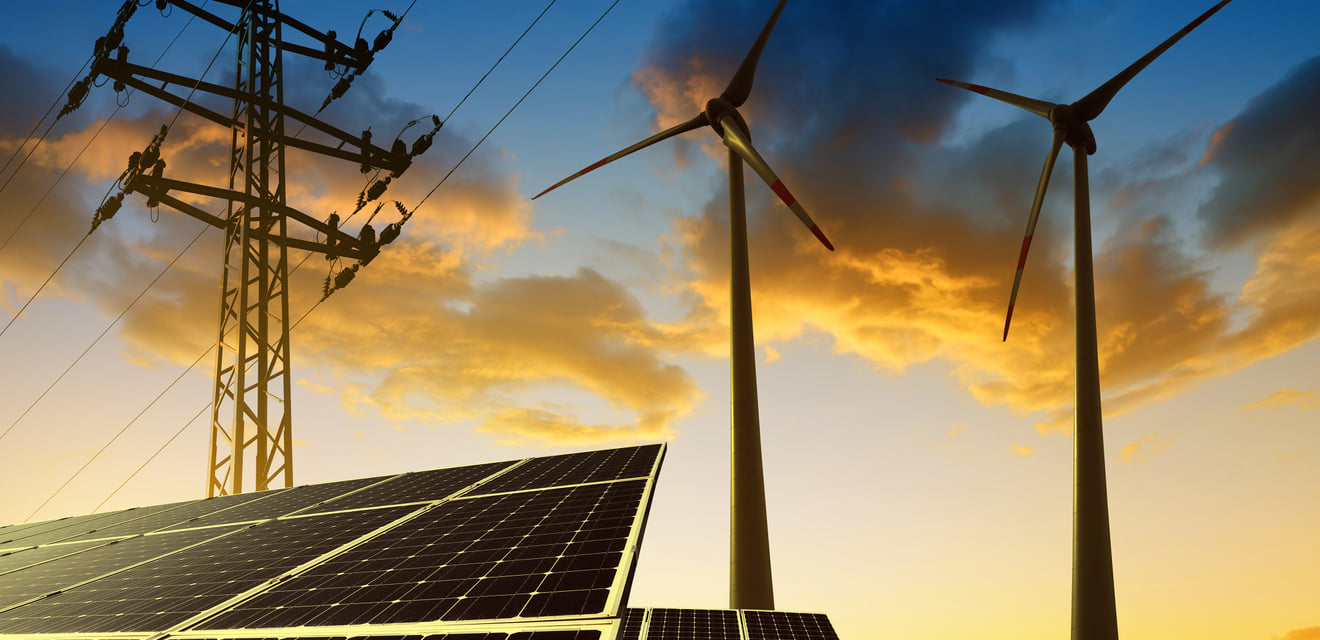What small and midsize enterprises need to know about energy attribute certificates

If you run an SME that aims to take decisive climate action, energy attribute certificates are a viable step in the process. Learn how purchasing these certificates can help your business on the path toward more robust sustainability initiatives.
Today, it’s common practice for small and midsize enterprises (SMEs) to take steps toward the renewable energy transition.
However, if your organization is new to the world of renewable energy, emission reductions initiatives, and corporate sustainability overall, you may be wondering where to begin.
Switching to renewable energy via purchasing energy attribute certificates (EACs) is a viable way to start. EACs are a relatively accessible, high-impact option that can jumpstart your sustainability work or support climate action progress you are already making.
What are energy attribute certificates?
While it’s not possible to track individual watts of energy from source to outlet, organizations can define their energy use by purchasing an equivalent number of EACs to then claim the renewable energy use. Each EAC represents one megawatt hour (MWh) of electricity generated by a renewable energy source.
As well, EACs are a general term, and different regions give unique classifications to certificates. For instance, North America designates them as renewable energy certificates (RECs), while Europe calls them Guarantees of Origin (GoOs)
There are several different types of EACs, certificates connected biomass, hydro, solar, and wind power generation being the most common. Certificates are further differentiated by geography, and some companies prefer to purchase energy generated within a specific state or region, while other companies are mandated to do so.
As an advisor in renewable energy markets, ACT can help you identify which EACs you need to meet your regulatory and climate action goals as an SME.
How to buy renewable energy using renewable energy credits
To determine your renewable energy certificate needs, you’ll need to do a small amount of in-house research to know how many MWh of renewable energy you’d like to procure.
One step is to check with your utility provider to see how many MWh you consumed in the past year. This will give you an understanding of the equivalent number of EACs you need to purchase to make your renewable energy claim.
ACT can help identify the right EACs for your renewable energy procurement. Once you communicate your preferences like renewable energy location and technology, and the total volume required, we’ll do the research to identify all of the available options. The best practice is to buy credits that were generated in the same calendar year as the energy consumption you wish to claim as renewable.
Then, we’ll present you with tailor-made solutions, answer any questions your leadership team may have, and guide you through the entire process, from procurement to retiring credits.
How RECs can help you sustain your business
While there are many kinds of renewable energy solutions available, three main reasons make EACs stand out for SMEs.
1. Purchasing certificates helps put your company’s values into action. Directing finance toward renewable energy is one way to act on your sustainability commitments.
2. When you purchase EACs, you’re able to make marketing claims to back up your corporate sustainability efforts.
3. If you are looking for investors, committing to renewable energy can make your business more attractive, whether because you’ll be better aligned with their values or because sustainable practices are increasingly more important for businesses globally.
Purchasing EACs is not only a viable option for supporting environmental action, it also contributes to your overall marketability in the short and long terms.
Renewable energy solutions are available to companies of all sizes
Whether you work at a major enterprise that’s already committed to 100% renewable energy as part of the RE100, or you run a small business with the ambition to take your first steps, there are renewable energy solutions available that meet your needs and your financial standing.
EACs have become quite popular among SMEs because they don’t require long-term contracts, which gives leadership the flexibility to make sustainable decisions within the year, every year. This type of renewable energy purchase is also a viable complementary action to take in parallel to longer-term renewable energy activities within your business.
As climate change continues to shape consumer and investor priorities, making commitments across your entire value chain and operations, and finding ways to compensate when those measures need a longer runway, can make a tremendous difference in the future of your company.
To explore the available options for purchasing renewable energy, get in touch with ACT today.
Topics